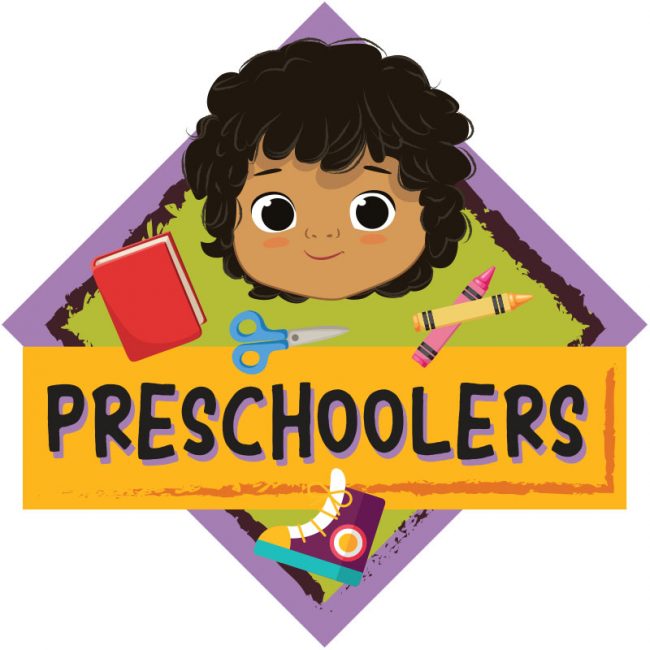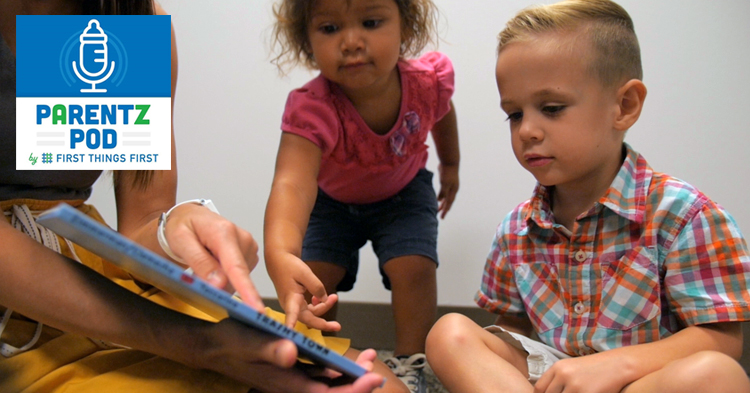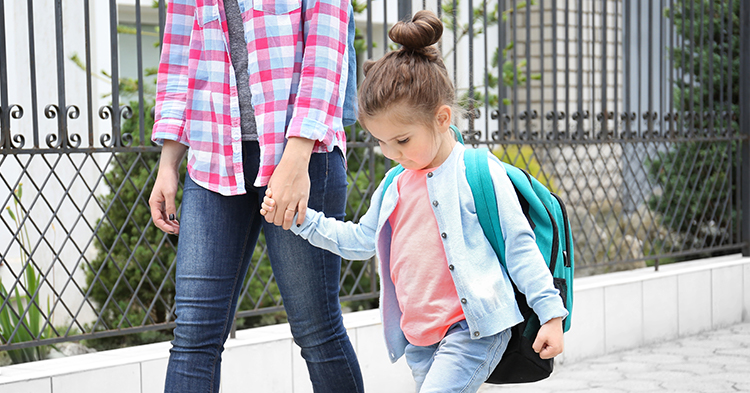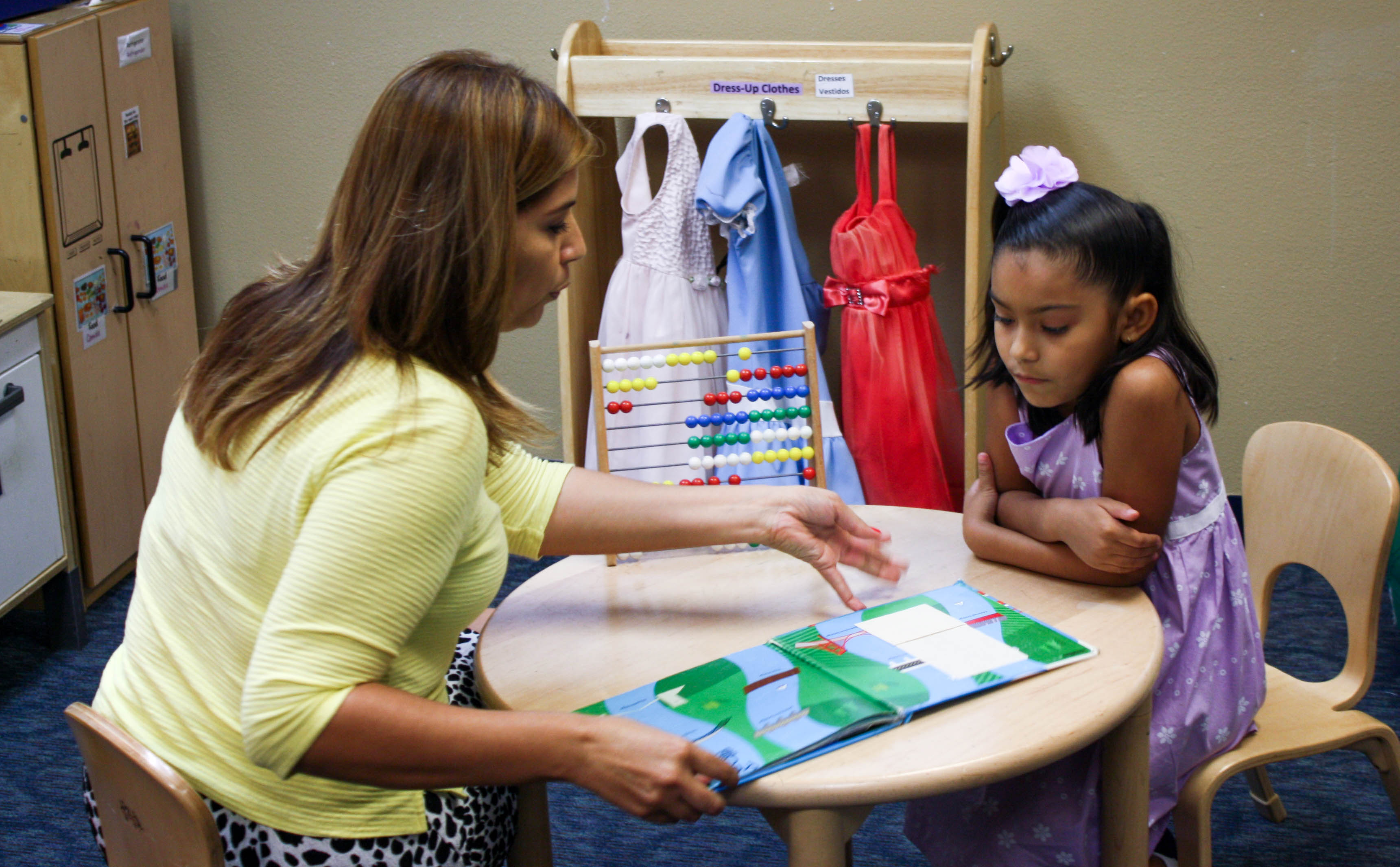
- Kindergarten readiness is about what kids should know and be able to do when they start school.
- Social-emotional development is as important as physical and academic skills.
- No matter what your child’s age, there are things you can do to help them be ready for kindergarten.
The first day of kindergarten is a big deal. It’s a new step in your child’s education and a special event in your family. You’ll take lots of photos and maybe shed a few tears.
But as you look forward to that special day, you might find yourself wondering…
Is my child ready for kindergarten?
How do you know? And what does that even mean? All good questions.
We have some answers for you. We’ll explain how you and your child can get ready for kindergarten and give you some tips on how you can help your child on that special day.
Now, some of you may be thinking…
I have a baby. I can come back later, right?
Stick around. There are a lot of simple, everyday things you can do with your baby now — before they can walk or talk or use scissors — to help them learn and develop the skills they’ll need later on. The sooner the better, but no matter how old your child is, starting now is great.
So let’s get started…
What is kindergarten readiness?
Kindergarten readiness (sometimes called “school readiness”) is a way to describe the things a child should know and be able to do when they start kindergarten. These skills and abilities are related to different areas of child development (sometimes called “domains”), including:
- Health and physical skills (“motor skills”)
- Social and emotional development
- Language skills
- Approaches to learning
- General knowledge
There’s a lot to learn in that first year of school, and in addition to the lessons and activities, a kindergarten classroom also has schedules and directions to follow, lines to stand in and other children to get along with. So kids need social and behavioral skills — like independence, curiosity and self-control — as much as they need early academic skills — like counting or knowing some of the letters in their name.
Arizona’s School Readiness Framework has a formal definition of kindergarten readiness and the domains of child development. It’s intended for teachers, but take a look if you want a more detailed explanation.
What do kindergarten teachers think?
Who knows more about being ready for kindergarten than kindergarten teachers? We asked some kindergarten teachers from across Arizona about what children need to be ready for their first day of school:
- Language and early literacy skills (like vocabulary and how to handle books)
- Listening skills (“Attending kindergarten involves lots of listening!”)
- Independence
- Self-control
- Focus
- Curiosity
- Persistence
- Following directions (with one or two steps)
- Fine motor skills (to hold writing tools or use scissors)
- Writing their name
- Counting to five
- Bathroom skills (going by themselves, washing their hands, how to blow their nose and sneeze into their elbow, etc.)
- Sharing and taking turns
- Being a friend
A lot of these are social-emotional skills.
That’s right. Knowing their letters and numbers is helpful, for sure, but based on our understanding of early brain development, the skills that are most important for success in school — and in life — are things like communication, problem solving and working well with others. These skills start developing from birth and throughout their first five years, when a child’s brain grows faster than at any other time in life. Kids keep learning and developing in later years, too, but early childhood lays the foundation for their future learning.
What You Can Do
Now that you know more about kindergarten readiness, let’s talk about how you can help your little one be ready for success in school.
JUMP TO SECTION: |
PRESCHOOLERS | BABIES & TODDLERS |
PRESCHOOLERS
When should I enroll my child in kindergarten?
In Arizona, children can start kindergarten if they are age 5 before September 1. And by law, children must be enrolled in school or an approved alternative program by age 6. Check with your local school district for more information. Some schools start holding kindergarten registration events in January.
Here’s some advice from the American Academy of Pediatrics to help you decide when to sign your child up for kindergarten.
What can I do to help my child be ready for kindergarten?
If you have a preschooler who will be entering kindergarten next school year, it’s not too late to start getting them ready. Here are some tips:
Going to preschool makes a big difference.
Having some previous classroom experience can help make the transition to kindergarten much easier. Research shows that children who attend quality child care and preschool programs go on to do better in school.
| “When I taught kinder, it was more difficult for those students who didn’t have any previous school experience. Something as simple as lining up was difficult for them because they didn’t know what a line was. So those early childhood learning experiences are so, so important.”
Michelle Doherty, former Arizona Teacher of the Year “Kids have to get used to being away from their family for long days, sitting and listening to a story, taking turns in line — the social and emotional things. When students have had those experiences before coming to my class, you can see that. I think that quality preschool is more important than it ever has been.” Michelle Novelli, Rodel Exemplary Kindergarten Teacher |
Kindergarten transition programs can help, too.
If your child is one of the many in Arizona who didn’t attend preschool, you might want to look for a kindergarten transition program, which are designed to give kids some classroom experience before their first day of school. Together with a parent, children attend a series of classes, usually in the summer before they start kindergarten. Kids are introduced to what an elementary school and kindergarten classroom looks like and how to stand in line, listen and follow a teacher’s directions. Kindergarten transition programs may be offered by school districts, family resource centers and even some public libraries.
Help your child be more independent.
The months leading up to the first day of school are the ideal time to help your little one develop the independence and self-confidence they’ll need to be ready for the transition to kindergarten, but it’s never too early to start. Give your child simple tasks or chores, like making their bed, dressing themselves and clearing their own dishes. These things take practice, but over time, you’ll teach your child to be more independent.
| “There are simple ways you can encourage independence in your child during your regular daily routines. Find those tasks that you still do for your child that they are capable of learning to do for themselves, such as pouring their own bowl of cereal or picking out their own clothes. If they run into a roadblock, give them a chance to problem solve before jumping right in to take over. As they find themselves doing more for themselves and working through obstacles, they will also build a sense of independence and perseverance that is well worth the milk spills and mismatched clothes.”
Abbey Walejko, kindergarten teacher at Kyrene Monte Vista Elementary School in Phoenix |
Read with your child every day.
When you make reading part of your daily routine, you’re helping your child develop the language skills they’ll need to learn to read. Reading and telling stories together is quality time with you, and children’s books also introduce new and unusual words that you might not use in everyday conversation. That’s important, because vocabulary is a big part of school success. Find books that your child is interested in, and ask them questions about the story while you’re reading — “What do you think will happen next?” Reading together also helps your child develop other skills to prepare them for kindergarten.
| “Students should have some exposure to being read to. Read books to your child so they are practicing some listening skills, some daily routines and procedures of what it would look like for a teacher to read to their student in the classroom.”
Kathleen James, kindergarten teacher at Chinle Elementary School |
Want even more tips? Here are 6 Ways to Help Your Child Be Ready for Kindergarten.
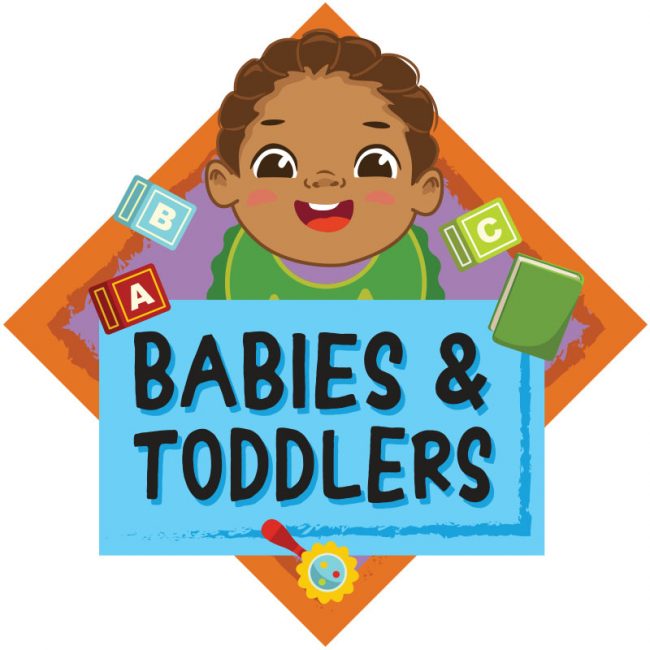
BABIES & TODDLERS
It’s never too soon to start helping your child learn and grow. From the very beginning, children are learning and developing language, social skills and other things they’ll need to be successful in school and in life. And long before you enroll your child in kindergarten, there are simple things you can do to support their healthy development and learning.
You are your child’s first teacher.
But you don’t need flashcards or worksheets. That’s not how very young children learn. Just do your best to be a loving, responsive caregiver. Play with them. Read to them. Talk with them, even before they can use words. Give them as many positive, stimulating experiences as you can. All of these everyday moments add up to what your child needs to be ready for school.
Talking with your child develops language skills.
When babies and toddlers hear words and language from caring adults, their brains develop the connections they’ll need to learn to use language and, later, to learn how to read. Studies show that children whose parents and caregivers regularly talk and read with them develop larger vocabularies and go on to become better readers and do better in school.
More than the amount of words a child hears, it’s quality talk that matters most. Even before your child can use words themselves, engaging them in short, back-and-forth conversations helps them develop vocabulary and language skills. It also supports their social-emotional development. Just a few minutes at a time can make a big difference.
Make reading together part of your daily routine.
More than any other piece of advice, kindergarten teachers say that reading with your child is a great way to help prepare them for school.
| “Make reading part of life. Read to your child. Have that lap time every day when you’re sharing books and words and stories. Your child may go through a phase when their favorite book is Green Eggs and Ham and they want you to read that book every night for four months. Go ahead and read it. For the thousandth time, go ahead and do it. You may not realize it, but it’s exciting for them, and they’re building literacy skills. Young kids need to hear words and sentences and rhymes to develop the skills they need to learn to read.”
Michelle Novelli, Rodel Exemplary Kindergarten Teacher |
Reading and telling stories together is quality time with you, and children’s books also introduce new and unusual words that you might not use in everyday conversation. That’s important, because vocabulary is a big part of school success.
Give them learning experiences.
Your child learns and grows when you give them opportunities to get out in the world to explore and discover new things. That could be in nature, at the library, free community events, on the bus or anywhere. It doesn’t have to be all day. Sharing as many different life experiences as you can with your child helps them develop social skills, vocabulary, curiosity and excitement about learning.
You can also encourage learning at home through play and art activities. Writing begins with scribbling, so give your toddler safe writing tools, like crayons, chalk or markers. Have them scribble and draw, and ask them questions about their drawings.
Keep your child healthy and smiling.
Your little one learns through their senses and experiences. Their eyesight, which develops rapidly in early childhood, is a big part of how they explore, discover and connect with you and their other caregivers. And because they learn so much through their eyes, it’s important to make sure your child’s vision health is part of their regular check-ups.
And just like they need regular check-ups with their doctor, your child needs a dental check-up starting at age 1 and every year after that to prevent tooth decay, which is a leading cause of school absences. The good news is that tooth decay is 100% preventable.
Check in on your child’s development.
While all children develop differently, it helps to know if your child is meeting typical milestones. Developmental milestones are the things most children can do by a certain age. How your child plays, learns, speaks, acts and moves offers important clues about your child’s development. Talk with your child’s doctor if you have any questions or concerns.
Use our Ages and Stages content to track your child’s developmental milestones.
Find free early childhood programs and services near you.
From birth to age 5, your child’s brain grows and develops more than at any other time in life. That’s why their early years are so important. First Things First has free early childhood programs to help you support your little one’s healthy development and learning. Use our online search tool to look for free programs and services in your Arizona community. Information is available in both English and Spanish.
Use our search tool to find free early childhood programs in your Arizona community.



